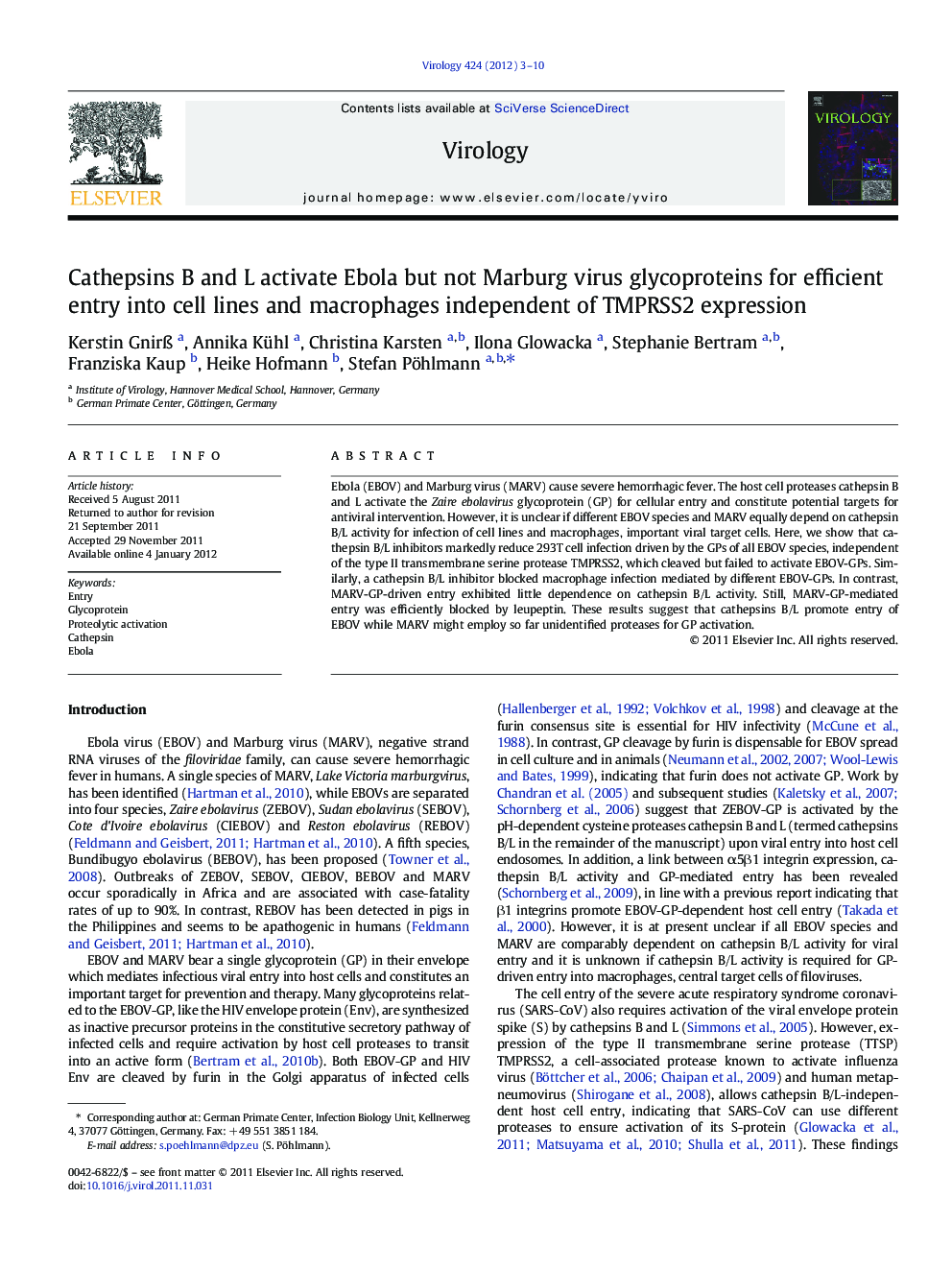| Article ID | Journal | Published Year | Pages | File Type |
|---|---|---|---|---|
| 3424369 | Virology | 2012 | 8 Pages |
Ebola (EBOV) and Marburg virus (MARV) cause severe hemorrhagic fever. The host cell proteases cathepsin B and L activate the Zaire ebolavirus glycoprotein (GP) for cellular entry and constitute potential targets for antiviral intervention. However, it is unclear if different EBOV species and MARV equally depend on cathepsin B/L activity for infection of cell lines and macrophages, important viral target cells. Here, we show that cathepsin B/L inhibitors markedly reduce 293T cell infection driven by the GPs of all EBOV species, independent of the type II transmembrane serine protease TMPRSS2, which cleaved but failed to activate EBOV-GPs. Similarly, a cathepsin B/L inhibitor blocked macrophage infection mediated by different EBOV-GPs. In contrast, MARV-GP-driven entry exhibited little dependence on cathepsin B/L activity. Still, MARV-GP-mediated entry was efficiently blocked by leupeptin. These results suggest that cathepsins B/L promote entry of EBOV while MARV might employ so far unidentified proteases for GP activation.
